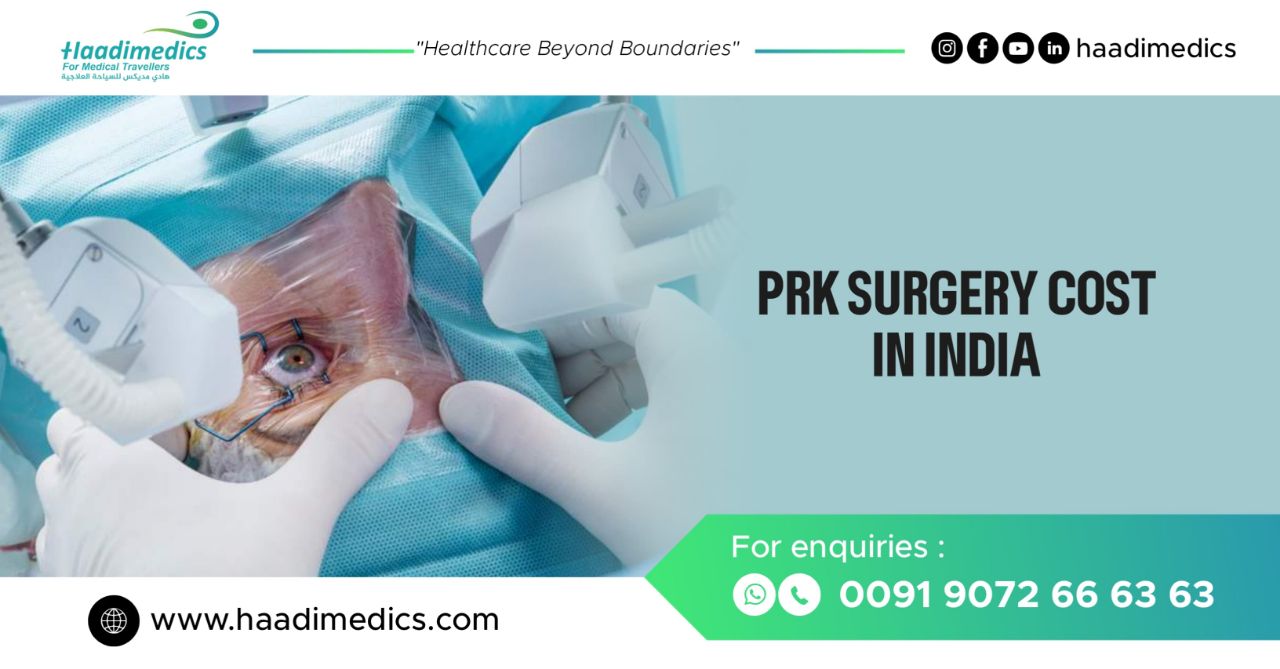India has made significant strides in the field of refractive eye surgery, particularly Photorefractive Keratectomy (PRK). With state-of-the-art technology and highly skilled ophthalmologists, India is a preferred destination for patients seeking effective and affordable eye treatments. Indian eye care centers are known for their high success rates and patient satisfaction.
What is PRK Surgery?
Photorefractive Keratectomy (PRK) is a type of refractive surgery used to correct vision problems such as myopia (nearsightedness), hyperopia (farsightedness), and astigmatism. PRK does not require making a corneal flap, in contrast to LASIK. Instead, the cornea's outer layer is removed to reshape the underlying tissue with a laser.
Symptoms Addressed by PRK
- Blurred vision
- Having trouble focusing on things at different distances
- Eye strain
- Headaches due to poor vision
Why is it done?
PRK is done to improve vision and reduce dependency on glasses or contact lenses. It is particularly suitable for individuals with thin corneas or those who engage in contact sports and other activities where a corneal flap (as created in LASIK) might pose a risk.
Risks
- Temporary discomfort or pain
- Hazy or blurry vision during the healing process
- Dry eyes
- Risk of infection
- Undercorrection or overcorrection of vision
- Potential for corneal scarring
Preparation
- Comprehensive eye examination to determine suitability
- Discontinuing contact lens use for a period before surgery
- Avoiding makeup, creams, or lotions on the day of surgery
- Arranging transportation as vision may be blurry post-surgery
Procedures
The PRK procedure typically includes:
1. Anesthetic Drops: Numbing drops are applied to the eyes.
2. Removal of Corneal Epithelium: The outer layer of the cornea is gently removed.
3. Laser Reshaping: An excimer laser reshapes the corneal tissue to correct the refractive error.
4. Bandage Contact Lens: A soft contact lens is placed on the eye to protect it while it heals.
Best Hospitals in India
- Centre for Sight Eye Hospital, Juhu Vile Parle
- Aravind Eye Hospital, Madurai
- LV Prasad Eye Institute, Hyderabad
- Shroff Eye Centre, Delhi
- Nethradhama Super Speciality Eye Hospital, Bangalore
- Dr. Agarwal's Eye Hospital, Chennai
Best Ophthalmologists for the Surgery
- Dr. Dharitri Samantaray
- Dr. Deependra V Singh
- Dr. Pratik Ranjan Sen
- Dr. Sunaina Arora
- Dr. Dheeraj Gupta
- Dr. Vandana Khullar
- Dr. Madhuri Pattiwar
Cost Comparison
India – INR 35000 – 40000 (USD 420)
Turkey – USD 1120
Germany – USD 1680
Malaysia – USD 2720
FAQ
1. Is PRK surgery painful?
Most patients experience mild discomfort during the procedure, which can be managed with medication.
2. How long does the PRK procedure take?
The actual laser treatment takes about 5-10 minutes per eye, but the overall procedure time is around 30 minutes.
3. When can I return to normal activities?
Most patients can return to work and normal activities within a week, though full visual recovery may take a few months.
4. Are the results of PRK permanent?
Yes, PRK offers permanent vision correction, though natural age-related vision changes can still occur.
5. Can PRK correct severe myopia?
PRK can correct mild to moderate myopia, but very severe cases may require alternative treatments.
6. Will I need glasses after PRK?
Many patients achieve 20/20 vision or better, but some may still need glasses for certain tasks.
7. Is PRK suitable for everyone?
Not everyone is a candidate for PRK. A thorough eye exam is necessary to determine suitability.
8. What are the alternatives to PRK?
Alternatives include LASIK, SMILE, and ICL (Implantable Contact Lenses).
9. How soon will I see improvements in my vision?
Initial vision improvement is noticeable within a few days, with continued improvement over several months.
10. What is the success rate of PRK?
PRK has a high success rate, with most patients achieving their desired vision correction


Comments